The beginning of the Tambov uprising
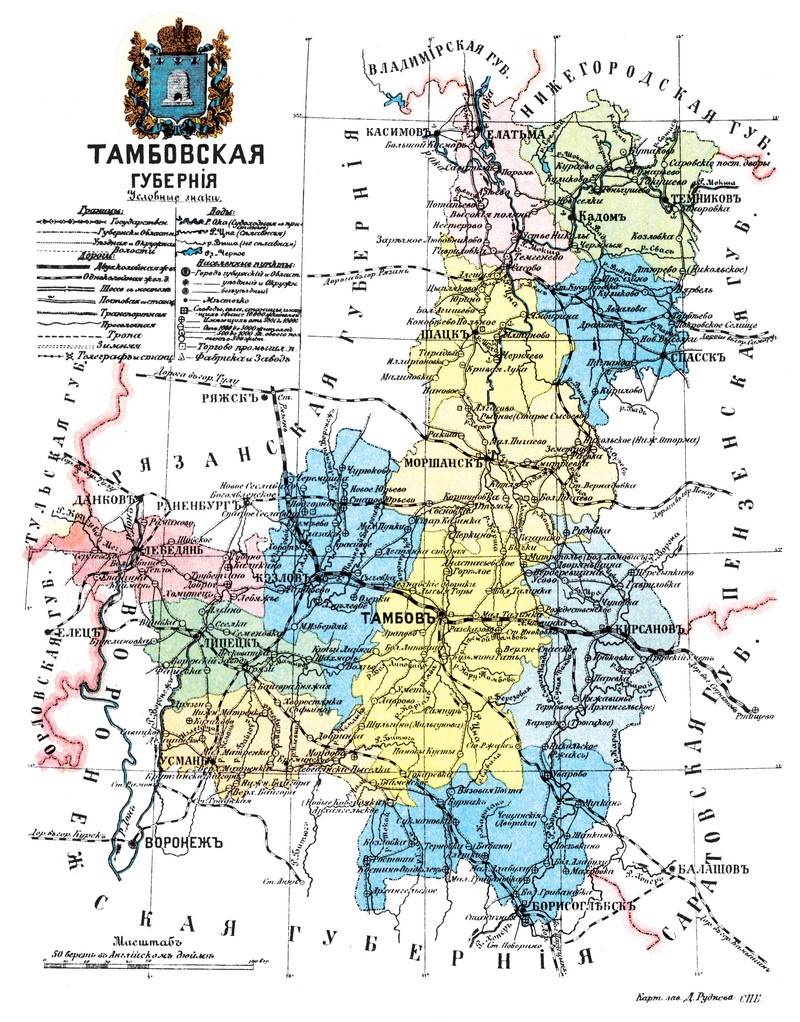
Tambov province before the revolution
the uprising of 1920-1921 was often compared either with the French Vendee of the late XNUMXth century, or with similar peasant wars in Russia itself - under the leadership of Razin, Bulavin or Pugachev. However, in these cases, in addition to some similarities, there are differences. So, a significant difference from the Vendee is that the Tambov rebels did not have help from abroad, and the uprising itself was not pro-monarchist. From the previous Russian peasant wars, the main difference is that there were no Cossacks in the Tambov region, while the uprisings of Razin or Pugachev were in fact Cossack-peasant ones.
How this uprising began, took place and was suppressed - we will follow in two parts of this article.
Tambov province and Alexander Antonov on the eve of the uprising
Before the First World War, the Tambov province was famous as one of the most fertile provinces in the country. The yields here were high, which also ensured a normal standard of living for the local population, the vast majority of whom were peasants. Of the total population of 3,7 million people in 1918, only 268 thousand lived in cities, in total there were 12 cities and 7 villages and villages in the province.
After the Bolsheviks seized power for the first few months, only the cities were subjected to their influence. The countryside for the first time felt all the "charms" of the Bolsheviks only in the summer of 1918, when mobilization was announced in the province.
The peasants, for the most part, did not burn with the desire to go to the fratricidal Civil War, but some nevertheless arrived at the recruiting stations. However, the mobilization was organized so badly that the recruits did not even bother to provide normal food. As a result, most of them immediately deserted, hiding either at home or in the forests. And thus became “outlaws” for the Bolsheviks.
In addition to the "deserters", who did not pose any threat to the authorities, there were also many people with military or revolutionary experience in the province. A significant part of adult men went through the First World War, many returned home with their front-line weapons.
In the spring of 1917, all the political prisoners of the revolutionaries were also released, one of whom was the Social Revolutionary Alexander Stepanovich Antonov.
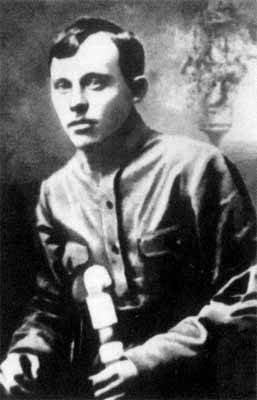
Alexander Antonov
Antonov, despite the age of 28, had a rich revolutionary experience. Even in his youth, he joined the Socialist-Revolutionary Party, and at the age of 19 he was convicted for preparing an assassination attempt on General Alexander Sandetsky, who was "famous" for his cruelty in suppressing peasant riots. Although the attempt ultimately failed, Antonov was sentenced to life imprisonment. By the way, General Sandetsky himself will be shot in 1918 by the Bolsheviks.
Leaving the spring of 1917 under an amnesty, Antonov returned to his native land, where he began working as a junior assistant to the head of the Tambov police. A few months later he was promoted to the head of the militia of the Kirsanovsky district.
In the spring of 1918, a train of heavily armed Czechs, former prisoners, who now rebelled in order to return home, followed Kirsanov Uyezd. Antonov delayed the train and, through persuasion, persuaded the rebels to hand over all their weapons. However, having received the weapon, Antonov did not hand it over to the authorities, but safely hid it in the forest, guessing that it might soon come in handy. And he was not wrong.
In August of the same year, the Tambov Chekists discovered correspondence, which reported that the Socialist-Revolutionaries, in alliance with the local police, were preparing an anti-Bolshevik uprising. Suspicion fell primarily on Antonov.
Without waiting for his arrest, he fled to Samara, while the Tambov Bolsheviks, meanwhile, sentenced him to death in absentia.
Having created a detachment of almost 15 people from his friends, already in December Alexander Antonov returned to his native land and killed those who sentenced him to death. After that, hiding in the forests, he began to periodically attack the Chekists and food detachments hated by the people, who robbed the peasants of bread and cattle. All this brought him popularity among the local population.
By the summer of 1919, there were already 150 people in Antonov’s detachment, and the number of communists and food detachments destroyed by them exceeded a hundred. Only in the fall, the Bolsheviks sent a large detachment of 250 soldiers against him, but they could not defeat the Antonovites or capture their leader. Antonovtsy after several clashes only retreated into the forest.
The beginning of a full-scale uprising
In the summer of 1920, the Tambov province suffered from a severe drought. Only 12 million poods of grain were collected, while the surplus plans were not reduced, and they reached 11,5 million poods. Although it was obvious to everyone that such plans were unrealistic, in August the food detachments began to confiscate bread from the peasants, in fact dooming them to starvation.
The village of Khitrovo was the first to revolt on August 15, in which the peasants disarmed the food detachment that had come to them for new requisitions. After that, other villages also rose. Already on August 21, a state of siege was introduced in the Tambov province. The Bolsheviks sent a punitive detachment under the command of Alexander Schlichter to suppress the uprising, but he was soon defeated and forced to flee to Tambov.
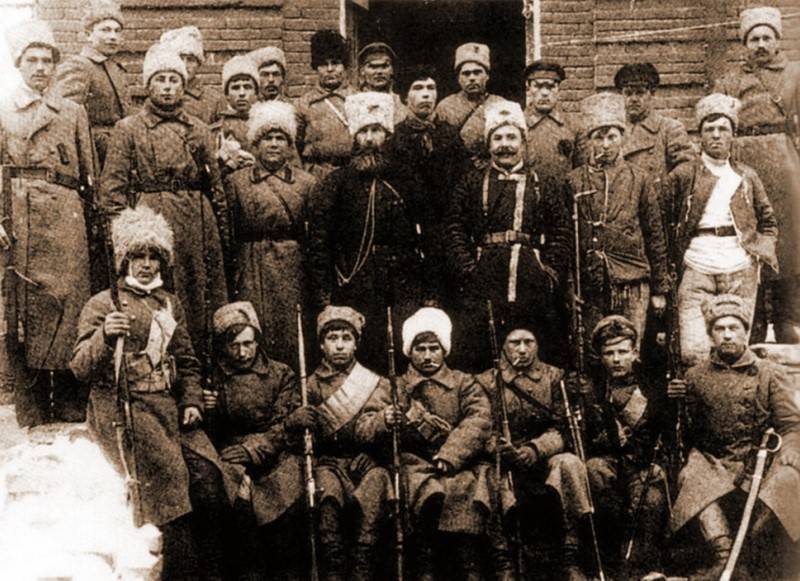
Tambov rebels
On August 25, Alexander Antonov declared himself the leader of the uprising, but in fact it remained spontaneous for some time. Antonov continued to command only his detachment, while in other villages and districts their own insurgent detachments arose, each with its own commander.
The unified command of the Tambov rebels appeared only in November 1920, when they created the Main Operational Headquarters. He subjugated numerous peasant commanders, turning their disparate detachments into a virtually unified army.
Alexander Antonov headed the headquarters, and his faithful comrade-in-arms Pyotr Tokmakov was in command of the army. He participated in the Russian-Japanese and World War I, rose to the rank of lieutenant of the tsarist army, had four St. George's crosses and had the richest combat experience among the rebels. As chief of staff, Antonov actually became a subordinate of the commander-in-chief Tokmakov, and this was a reasonable distribution of duties: each of them did what he was most competent in.
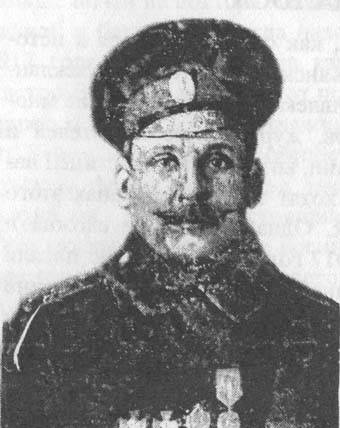
Petr Tokmakov
Pyotr Tokmakov also headed the Union of the Working Peasantry, which exercised political control in all the territories occupied by the rebels. He put forward the STK and the main demands of the uprising: the elimination of the Bolshevik government, the resolution of the activities of all parties, excluding the Bolsheviks and monarchists, the abolition of the food requisition and food detachments, political freedoms, and the convening of the Constituent Assembly.
The Bolsheviks, meanwhile, continued to try to suppress the Tambov uprising, but it turned out extremely unsuccessfully for them. In December, all the red troops of the province were headed by Alexander Pavlov. At his disposal, there were over 12 soldiers, 000 machine guns and 136 guns. But this was clearly not enough, and the rebel army, already numbering more than 18 people, inflicted a number of defeats on Pavlov.
By February 1921, the uprising was at its peak. In addition to the Tambov province, it also spread to many districts of the Voronezh, Penza and Saratov provinces, a huge territory was under the control of the rebels.
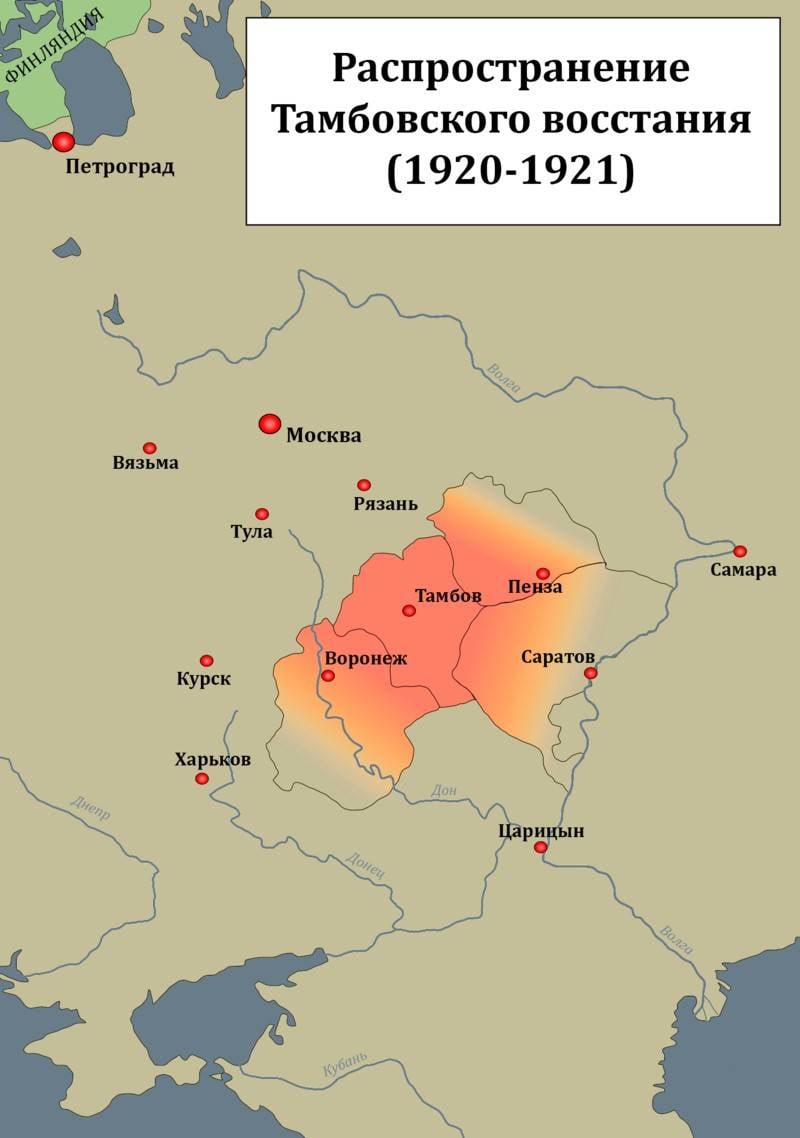
In this situation, feeling a clear threat to his power, Lenin makes concessions: he cancels the surplus appraisal in the Tambov province. The following month, when the sailors' uprising took place in Kronstadt, the surplus appraisal was already canceled throughout the country. The Bolsheviks also abandoned the policy of "war communism", replaced by the New Economic Policy (NEP).
The fact that the uprisings in the Tambov province and Kronstadt served as the direct cause of such a sharp change in policy was openly recognized even by Stalin in 1924:
The Tambov peasants celebrated the abolition of the surplus appraisal as their victory. Some of them, having decided that the main goal of the uprising had been achieved, went home. On the whole, however, the uprising continued.
Antonov himself reacted this way to news about the abolition of the surplus:
On April 11, the rebels won another major victory: they defeated the garrison in Rasskazovo, capturing a battalion of Red Army soldiers. After that, the unfortunate Alexander Pavlov was removed from the post of commander of the Soviet troops in the Tambov province. His place was taken by Mikhail Tukhachevsky, with whom the Bolsheviks pinned great hopes.
To be continued ...
- Andrey Sarmatov
- https://ru.wikipedia.org https://vatnikstan.ru
Information